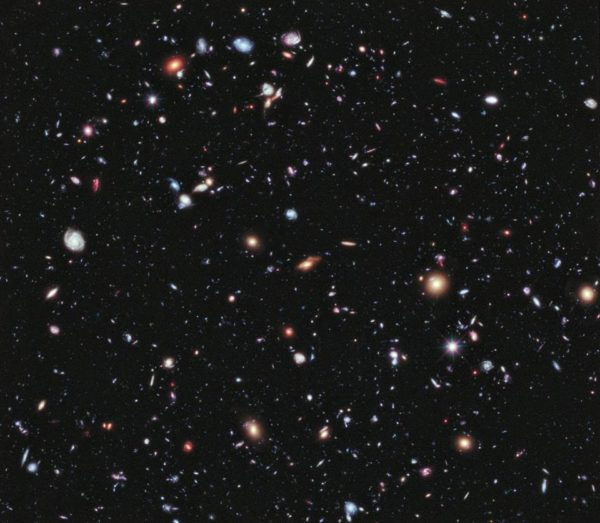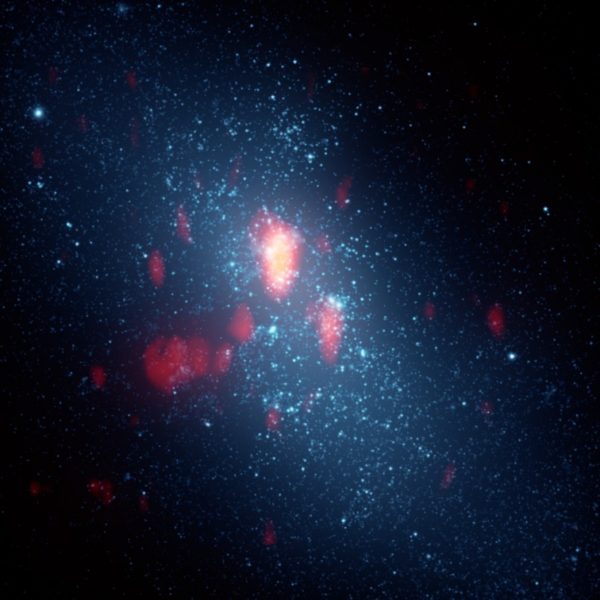"For the first time we can learn about individual stars from near the beginning of time. There are surely many more out there." -Neil Gehrels
We know what NASA’s James Webb and WFIRST are designed for, and we know what we expect to find. James Webb will be the largest space telescope ever, focused mostly on infrared observations probing exoplanets, star-forming nebulae, galaxy evolution and the first stars and galaxies in the Universe. WFIRST will be just like Hubble, except with better instruments and 100 times the field-of-view.
 The Hubble eXtreme Deep Field, our deepest view of the Universe to date. Imagine this, but with 100 times the field-of-view; that's what WFIRST could deliver. Image credit: NASA; ESA; G. Illingworth, D. Magee, and P. Oesch, University of California, Santa Cruz; R. Bouwens, Leiden University; and the HUDF09 Team.
The Hubble eXtreme Deep Field, our deepest view of the Universe to date. Imagine this, but with 100 times the field-of-view; that's what WFIRST could deliver. Image credit: NASA; ESA; G. Illingworth, D. Magee, and P. Oesch, University of California, Santa Cruz; R. Bouwens, Leiden University; and the HUDF09 Team.
But the best discoveries from Hubble were things like dark energy: things we didn’t expect to find! What might some of the surprises be -- without hypothesizing radical new physics -- that these two observatories might uncover? They range from signatures of exoplanetary life to being able to possibly falsify dark matter, and they’re all incredible.
 Gas outflows occur in dwarf galaxies when intense star formation occurs, expelling normal matter while leaving dark matter behind. Image credit: J. Turner.
Gas outflows occur in dwarf galaxies when intense star formation occurs, expelling normal matter while leaving dark matter behind. Image credit: J. Turner.
Find out seven of the most tantalizing possibilities today, on this week’s astonishing Ask Ethan!
- Log in to post comments

With science extending and enhancing human senses, humanity’s perception of itself and its relationship to the natural world can, and with luck will improve.